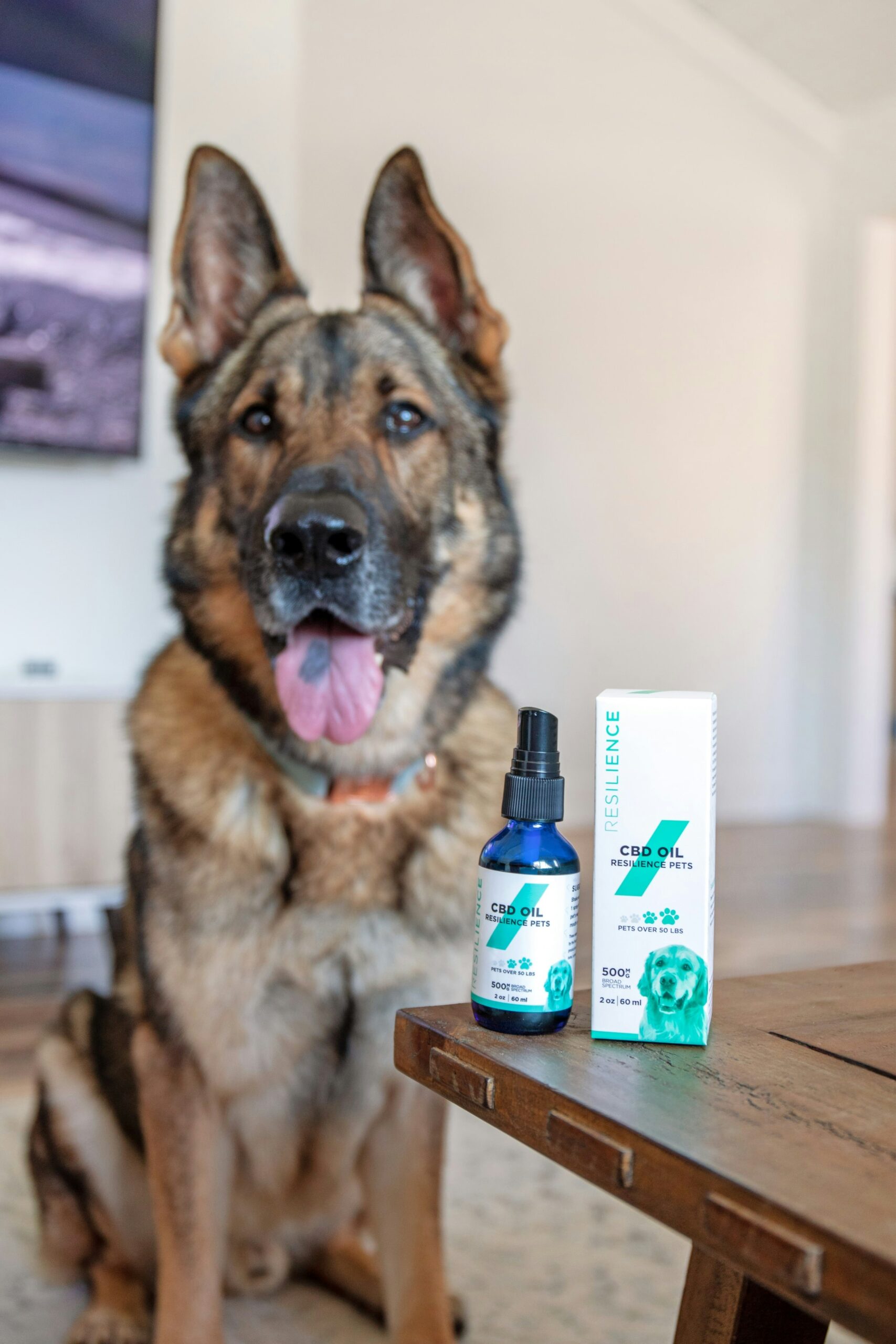Natural Remedies for Common Pet Ailments
Introduction to Natural Pet Care
The realm of pet care is evolving, with many pet owners increasingly turning to natural remedies to address common health ailments in their animals. This trend reflects a broader shift towards holistic approaches that emphasize overall wellbeing, sustainability, and minimal side effects. Natural remedies can offer several distinct advantages over conventional treatments, often making them an attractive option for those devoted to the wellness of their pets.
One of the foremost benefits of natural treatments in pet care is the reduced risk of side effects. Unlike pharmaceuticals that can occasionally trigger adverse reactions, natural remedies tend to be gentler, alleviating symptoms without introducing harsh chemicals into the animal’s system. This reduces the likelihood of secondary complications and promotes a smoother path to recovery.
Moreover, natural remedies can be highly cost-effective. Many of these treatments utilize easily accessible ingredients, such as herbs and essential oils, which are often more affordable than prescription medications. This can be especially beneficial for managing chronic conditions, where ongoing care can become financially burdensome over time.
Another vital aspect is the comprehensive approach taken by natural pet care. Holistic wellness doesn’t merely aim to treat isolated symptoms but strives to support the pet’s overall health. This broader perspective can contribute to more robust and resilient physiological systems, enhancing the pet’s quality of life.
Crucially, natural remedies can effectively complement traditional veterinary care. Combining both approaches allows for a more versatile strategy in managing health issues. For instance, natural treatments can support the healing process and bolster immunity, working synergistically with conventional methods to achieve optimal outcomes.
Ultimately, the integration of natural remedies into pet care symbolizes a balanced and thoughtful approach. By prioritizing gentle, cost-effective, and holistic options, pet owners can ensure that their animals receive the comprehensive care they need to thrive.
Common Digestive Issues and Natural Remedies
Pets often experience digestive disturbances such as diarrhea, constipation, and indigestion, which can be distressing for both the animals and their owners. Fortunately, several natural remedies can effectively alleviate these issues. One such remedy is pumpkin, which is particularly beneficial for constipation. Pumpkin is high in fiber and can help regulate bowel movements. For dogs, adding a tablespoon of pure canned pumpkin to their food once or twice a day is usually sufficient. For cats, a teaspoon per meal is recommended. It is important to avoid pumpkin pie filling, which contains sugar and spices that can be harmful to pets.
Ginger is another valuable natural remedy, primarily used to manage nausea and indigestion. Ginger contains compounds that promote digestive health and alleviate nausea by soothing the stomach lining. For dogs, a small amount of freshly grated ginger, about one-eighth of a teaspoon, can be mixed into their food once a day. Cats, due to their smaller size and more sensitive digestive systems, should be given no more than a pinch of ginger powder or a drop of ginger tea once a day. Always consult your veterinarian before administering ginger, especially if your pet is pregnant or has a preexisting health condition.
Chamomile is renowned for its calming properties, making it an excellent remedy for an upset stomach. It can help reduce stomach inflammation and ease digestive discomfort. For dogs, you can brew a chamomile tea using one chamomile tea bag or one teaspoon of dried chamomile flowers steeped in a cup of boiling water. Once the tea cools, give your dog one to two teaspoons of the tea per 10 pounds of body weight up to twice daily. For cats, a few drops of the cooled chamomile tea served in water or food once a day can be beneficial.
While these remedies can be effective, it is crucial to monitor your pet for any adverse reactions and consult with a veterinarian if symptoms persist or worsen. Proper dosage and careful observation are essential to ensuring the well-being and safety of your pet.
Skin Irritations and Herbal Solutions
Pets often experience skin irritations such as hot spots, rashes, and dry skin, which can cause significant discomfort. These common ailments can be addressed effectively using natural remedies that are both safe and soothing for your pets. One of the most versatile and beneficial remedies is aloe vera. This plant is renowned for its cooling and moisturizing properties, making it ideal for treating dry, irritated skin. To use aloe vera, simply extract the gel from an aloe leaf and apply it directly to the affected area. Ensure that your pet does not ingest the gel, as it can be toxic when consumed in large amounts.
Oatmeal baths are another excellent natural remedy for pets suffering from itchy skin conditions. Oatmeal contains anti-inflammatory properties that can help reduce skin irritation and provide instant relief from itching. To prepare an oatmeal bath, grind natural, plain oatmeal into a fine powder and mix it into warm bath water. Allow your pet to soak in the bath for about 10-15 minutes. This soothing treatment can be repeated once a week or whenever your pet shows signs of discomfort.
Coconut oil is well-known for its anti-fungal and anti-bacterial qualities, making it particularly effective for treating various skin conditions in pets. It can help to alleviate symptoms of rashes, eczema, and even yeast infections. To apply coconut oil, warm a small amount in your hands until it becomes liquid and gently massage it into your pet’s skin. Not only does it provide immediate relief, but it also helps to keep your pet’s skin hydrated and healthy. Always use organic and virgin coconut oil to ensure that your pet benefits from the highest quality product available.
By utilizing these natural remedies, pet owners can effectively manage and treat common skin irritations in their beloved animals. Aloe vera, oatmeal baths, and coconut oil offer safe and gentle alternatives to chemical treatments, ensuring your pets remain comfortable and healthy.
Natural Treatments for Joint Pain and Arthritis
Joint pain and arthritis are common ailments in aging pets, often leading to discomfort and a decreased quality of life. Managing these conditions naturally can provide significant relief and improve overall well-being. One of the most promising natural supplements for joint health is glucosamine, a compound integral to the formation and repair of cartilage. Administering glucosamine supplements can help mitigate the degeneration of cartilage and alleviate pain.
Another valuable supplement is chondroitin. Like glucosamine, chondroitin is fundamental in maintaining healthy cartilage. It works by drawing water into the tissue, enhancing shock absorption and nutrient delivery, which can reduce the progression of arthritis. When used together, glucosamine and chondroitin can provide synergistic benefits, giving pets a better chance at mobility and reduced pain.
Turmeric, known for its anti-inflammatory properties, is another natural remedy worth considering. The active ingredient in turmeric, curcumin, has been shown to decrease inflammation and pain in joints. Incorporating turmeric into a pet’s diet, whether through supplements or mixed into their food, can be an effective way to manage arthritis symptoms.
In addition to dietary supplements, topical treatments can offer direct and localized relief. CBD oil is gaining popularity for its anti-inflammatory and pain-relieving effects. Applied directly to the affected joints, CBD oil can help reduce swelling and pain, promoting greater comfort and ease of movement. It is crucial to choose high-quality, pet-specific CBD products to ensure safety and efficacy.
Incorporating these natural remedies into a pet’s healthcare routine, under the guidance of a veterinarian, can provide a holistic approach to managing joint pain and arthritis. These treatments offer a gentler alternative to conventional medications, often coming with fewer side effects, and can significantly improve the quality of life for aging pets.
Holistic Solutions for Anxiety and Stress
Pets, much like humans, can experience anxiety and stress due to various factors, including changes in the environment, loud noises, or separation from their owners. Recognizing and addressing these issues promptly is essential for maintaining the overall well-being of your beloved companion. Instead of immediately resorting to pharmaceuticals, consider natural remedies that can help alleviate anxiety and stress in pets.
Lavender essential oil is known for its calming effects and can be beneficial for anxious pets. A few drops of diluted lavender oil applied to a pet’s bedding or a gentle massage with a lavender-infused oil blend can promote relaxation. However, it’s crucial to ensure the oil is safe for pets and correctly diluted. Always consult your veterinarian before introducing essential oils into your pet’s routine.
Another effective option is the use of thunder shirts. These snug-fitting garments apply gentle, constant pressure to your pet’s body, which can have a calming effect similar to swaddling a baby. Thunder shirts can be particularly helpful during thunderstorms, fireworks, or other situations that trigger stress and anxiety. Ensure a proper fit for maximum effectiveness and comfort.
CBD treats have gained popularity as a natural remedy for pet anxiety. Cannabidiol (CBD), derived from hemp plants, interacts with the endocannabinoid system to promote a sense of calm and well-being without the psychoactive effects associated with THC. When considering CBD treats, choose products specifically formulated for pets, and start with a low dosage to monitor your pet’s response. Consult your veterinarian to ensure CBD is appropriate for your pet’s condition and to determine the correct dosage.
To gauge the effectiveness of these remedies, monitor signs of improvement in your pet’s behavior. Look for decreased pacing, less whimpering or barking, a more relaxed posture, and overall improved mood. By integrating these natural remedies into your pet’s care regimen, you can help create a more serene environment for your furry friend.
Natural Remedies for Respiratory Issues
Respiratory illnesses such as asthma and bronchitis are common ailments in pets. These conditions can lead to difficulty breathing, coughing, and overall discomfort for our furry companions. Fortunately, various natural remedies offer relief and support respiratory health. Below are some effective natural treatments for pet respiratory issues.
Steam Therapy: Steam therapy is a simple and effective method to relieve respiratory congestion in pets. The warm, moist air helps to loosen mucus and ease breathing. To administer steam therapy, you can bring your pet into the bathroom while running a hot shower to create a steamy environment. Ensure that the water temperature is safe and that your pet remains comfortable throughout the process. Bear in mind that pets should not be left unattended during steam therapy sessions.
Honey for Soothing the Throat: Honey is a natural and soothing remedy for pets suffering from a sore throat due to respiratory issues. It has anti-inflammatory and antimicrobial properties that can assist in reducing irritation and infection. A small amount of honey, preferably raw and organic, can be administered directly to your pet or mixed into their food. However, it is important to restrict honey usage in pets with diabetes or obesity due to its high sugar content.
Herbal Remedies: Certain herbs, such as thyme and licorice root, have been found to support respiratory health in pets. Thyme possesses natural antimicrobial properties, making it effective against bacterial infections in the respiratory system. Licorice root contains anti-inflammatory compounds that can soothe inflamed airways. These herbs can be administered in small doses, either as a tea or mixed with food. It is crucial to consult with a veterinarian before using herbal remedies to ensure they are safe for your specific pet and that they do not interfere with any current medications.
By incorporating these natural remedies into your pet’s care routine, you can help alleviate symptoms of respiratory issues and promote a healthier, more comfortable life for your animal companion. Always collaborate with a veterinarian to tailor these treatments to your pet’s individual needs and to ensure safe and effective use.
Boosting Immune System Naturally
Ensuring a robust immune system is paramount to maintaining overall pet health. A strong immune system not only prevents common ailments but also enhances pets’ resilience against environmental stressors and pathogens. Natural immune boosters such as echinacea, probiotics, and omega-3 fatty acids play a vital role in this regard.
Echinacea, a well-known herbal remedy, is celebrated for its immune-boosting properties. It stimulates the activity of white blood cells, which are crucial in fighting off infections. For pets, echinacea can be administered through tinctures or as a part of their food. It’s essential to consult with a veterinarian for the appropriate dosage, typically determined by the pet’s weight and overall health condition. Generally, a small to medium-sized dog might require around 12.5 mg to 25 mg per pound of body weight daily.
Probiotics also significantly contribute to a healthy immune system by maintaining a balanced gut flora. A healthy gut is a cornerstone for strong immunity, as it aids in nutrient absorption and food digestion. Probiotics can be found in various supplements or naturally in foods like plain yogurt. When introducing probiotics to your pet’s diet, start with the recommended dosage of the supplement, usually specified by the manufacturer. Locking in on live strains, particularly Lactobacillus and Bifidobacterium, can yield optimal benefits.
Omega-3 fatty acids, found in fish oil and flaxseed, support immune health by reducing inflammation. They are crucial in maintaining the integrity of cell membranes and promoting cardiovascular health. Including omega-3s in your pet’s diet can be achieved through dietary supplements, available in liquid or capsule forms. Again, appropriate dosage is key. For instance, a recommended amount might be 20 mg per pound of body weight for dogs and 5-10 mg per pound for cats.
Incorporating these natural immune boosters into a pet’s regular diet is a proactive approach to fostering a healthy and resilient immune system. Careful integration with proper dosage under veterinary guidance ensures that pets receive the maximum benefit without any adverse effects. Consequently, a fortified immune system ensures that pets lead a healthier, happier life.
Precautions and When to Consult a Veterinarian
Before introducing any natural remedies to address common pet ailments, it is crucial to consult a veterinarian. Professional veterinary advice is especially important if your pet has preexisting conditions or is currently taking prescribed medications. Natural remedies may interact with medications or exacerbate underlying health issues, so a vet’s guidance can help ensure your pet’s safety and well-being.
When initiating a new treatment, it’s essential to start with small doses and closely monitor your pet’s reactions. Watch for any changes in behavior, appetite, or overall health. If your pet exhibits adverse reactions such as vomiting, diarrhea, lethargy, or any signs of discomfort, discontinue the treatment immediately and seek veterinary assistance.
Consistent monitoring of your pet’s condition is paramount. Signs that professional medical advice should be sought include persistent symptoms, worsening of the condition, or the development of new symptoms. For instance, natural remedies may provide temporary relief for minor ailments like an upset stomach, but persistent gastrointestinal issues can indicate a more serious health problem that requires a vet’s expertise.
Furthermore, be aware that certain natural ingredients may be toxic to pets. For example, while many people use essential oils for their therapeutic benefits, some oils can be harmful to cats and dogs. Always verify the safety of any natural ingredient or product before exposing your pet to it.
In conclusion, while natural remedies can be beneficial for treating minor ailments, they should never replace professional veterinary care. Consulting a veterinarian ensures that your pet receives appropriate treatment and care tailored to their specific needs. Prioritizing your pet’s health and well-being by combining natural remedies with professional advice provides the safest and most effective approach to managing common ailments.















Post Comment